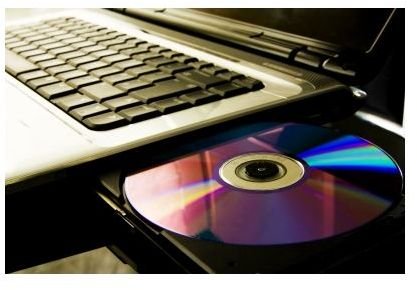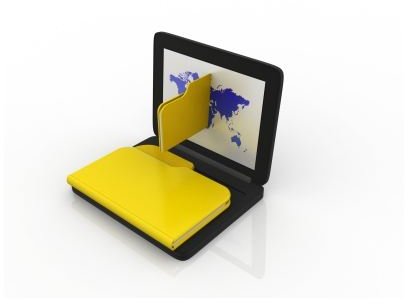Free PC Clean Up Tools and Tips: How to Clean and Maintain Optimum Computer Performance
1. Categorize Files Into Folders
The single biggest reason for a cluttered computer is unorganized files. Create categorized folders in a logical order to place start menu items, browser bookmarks, downloaded items and other files.
There is no hard and fast rule regarding the categorization of folders. As a general guideline, categorize start menu folders into games, Internet, multimedia, office and utilities; categorize bookmarks into articles, blogs, entertainment (subdivided into games, comedy, and others), forums, news, shopping, tools and videos; and categorize file folders into documents, software, songs and videos. Create subfolders under each category depending on the content. Name the folders to reflect the programs, websites and files stored under it.
2. Map Space Allocation
Find the folders that use the most space on your system with TreeSize Free or some other similar application.
Every once in a while, it is good practice to monitor how much space is left on your hard drive, to avoid messages such as “insufficient disk space” when trying to download an important file. Applications such as Treesize Free scan your hard drive quickly and show you which folders occupy the most space, allowing you to delete some if needed.
3. Archive Files
If you have files that you very rarely use, like no more than a couple of times a year, but still want to keep on your hard drive, you would be better off trading their ease of access to free up some disk space.
File archive programs such as 7-Zip allow compressing rarely used files into a container file that takes up less space. 7-Zip also provides added functionality such as optional password protection.
4. Backup

Back up important data at least once a month, just in case something happens to your hard drive. Instances such as hard disk crashing, floods, theft and other calamities come unannounced and suddenly.
Save the backed up data in two places if possible, for the risk of two backup devices malfunctioning at the same time is very rare. One good option is to put backups on DVD-R discs and a USB flash drive, and use password-protected archives for personal or sensitive data. With these backups in place, erase files not needed from the hard disk to free up memory and declutter the PC.
5. Free the Desktop
Do not save too much material on your desktop. Overloading the desktop with shortcuts, installers, and pictures is tempting, but it may soon reach the point where you cannot see your wallpaper clearly.
Delete unneeded items. Move the remaining non-shortcut items to their dedicated folder, and the shortcuts to the task bar. Moving the shortcuts to the task bar ensures availability of the shortcuts always on just a single click, and removes the desktop clutter as well.
6. Partition Your Hard Drive
A near full C: drive slows up the computer in a big way, because there may not be enough space left for the swap file. A solution is to leave the C: partition to Windows and installed programs and put everything else (such as installers and videos) on separate partitions.
You can manage your partitions right in Windows Vista (go to Control Panel > Administrative Tools > Computer Management > Storage > Disk Management). If using Windows XP or a 32-bit version of Windows, try Easeus’ free partition utility.
7. Defragment Your Hard Drive
Defragmenting the hard drive groups all files and available space separately, leading to faster access, for the computer will not have to search all over the hard drive for a file or space area. Windows Vista and Windows 7 have defragmenting enabled by default, but check to see if it is done at least weekly. For Windows XP, use the defragment drive option from the system tools utility in the Control Panel.
8. Use RSS and Delete Temporary Internet Files
Ever wondered why your browser slows down over time? The answer is accumulation of temporary Internet files that hog up memory. The trick is to keep temporary Internet files to a minimum. Either delete these files manually from the designated folder or use an application such as CCleaner to get rid of them.
Temporary Internet files, however, do serve a purpose, to retrieve previously browsed sessions. To ensure you still have access to such files, look for RSS feed links of the content you like and subscribe to such links using a RSS client such as Ziepod. This provides you with new content from such sites automatically. You can then keep or delete the content of your choice within the RSS client.
9. Print to PDF files
If you keep a lot of web pages for future reference, printing them to PDF files reduces the hard drive space compared to saving them as web pages with all their different elements.
CutePDF is a small application that allows you to print directly to a PDF file. Once installed, saving as PDF from the browser is as simple as clicking File > Print, selecting CutePDF as the printer, and clicking OK.
10. Discipline
All the above tips count for nothing without effective self-discipline. For instance, organizing files into logical folders, periodic defragmenting and backups, and more all require good discipline to do on a regular and consistent basis.
A computer is like a car. It requires regular maintenance to ensure it will work well for years. Proper maintenance allows you to do what you need without going in for costly upgrades or repairs.
References
-
TreeSize Free. https://www.jam-software.de/customers/downloadTrialProcess.php
-
CutePDF. http://www.cutepdf.com/
-
Image Credit:
1. freedigitalphotos.net/Sheela Mohan under these terms of use
2. freedigitalphotos.net/Gregory Szarkiewicz under these terms of use
